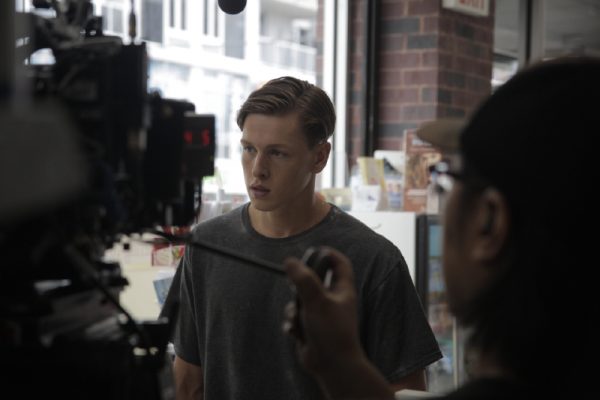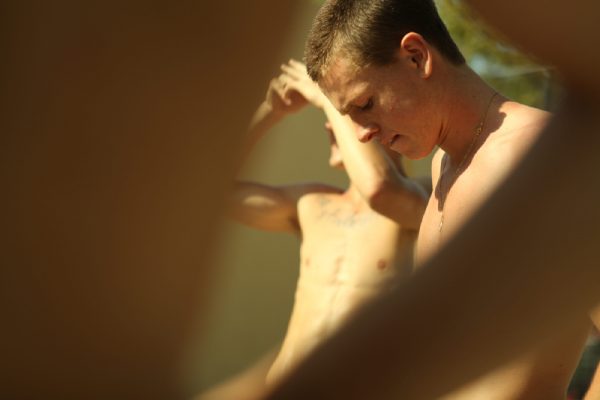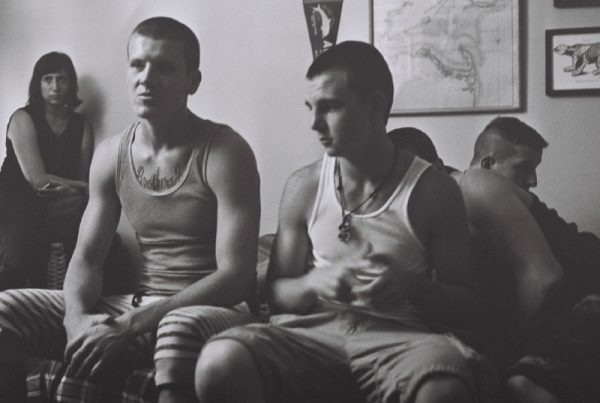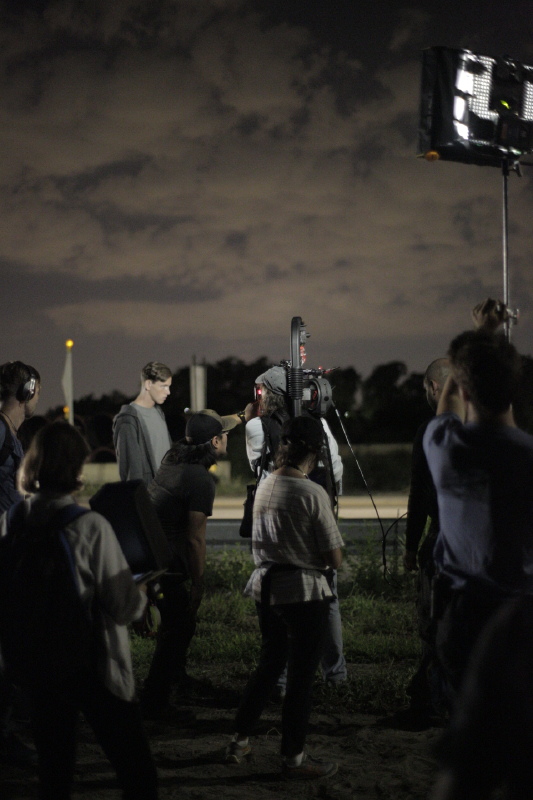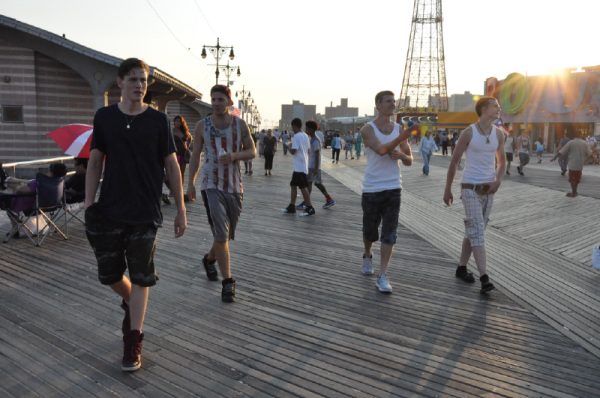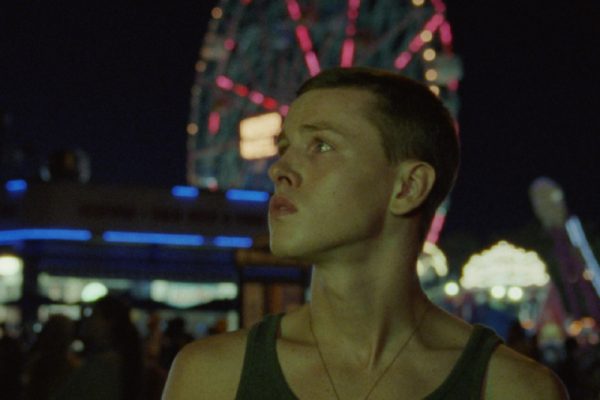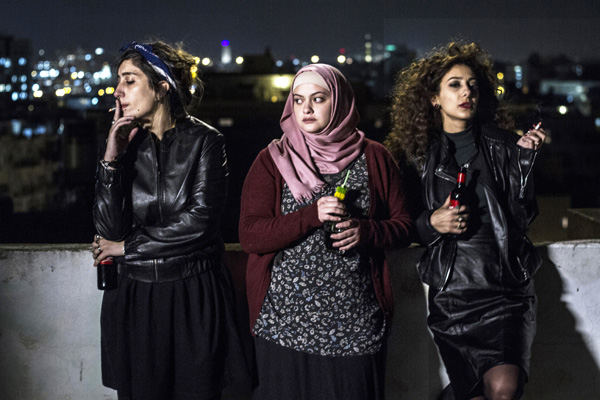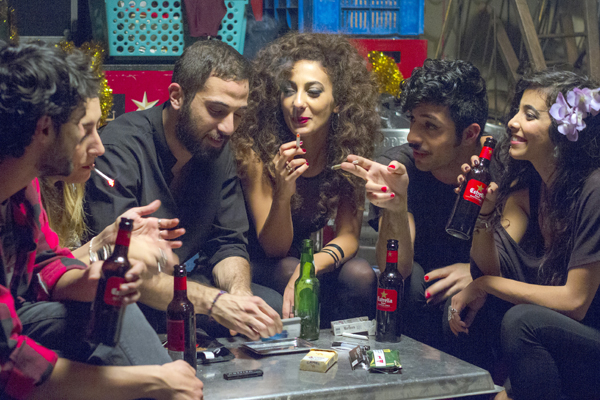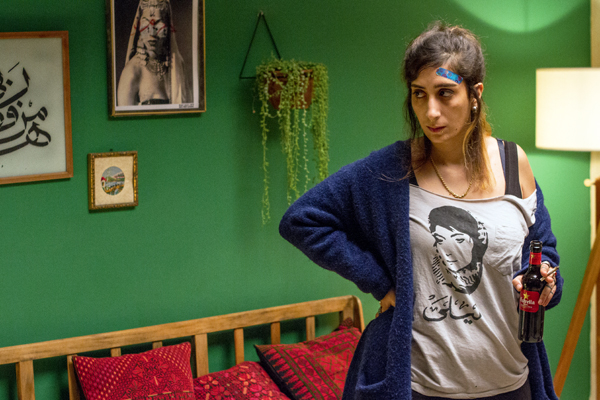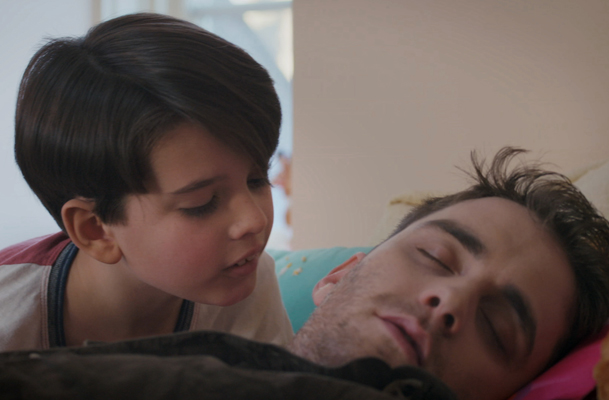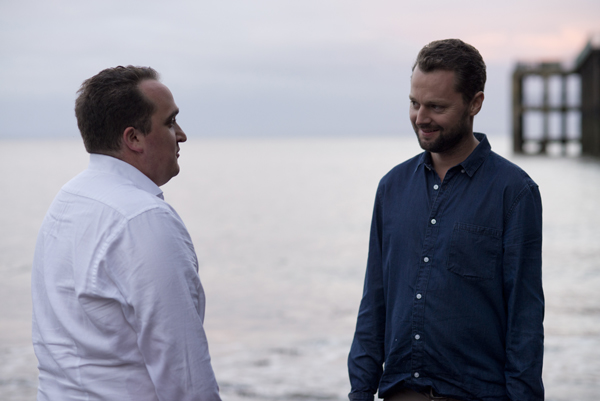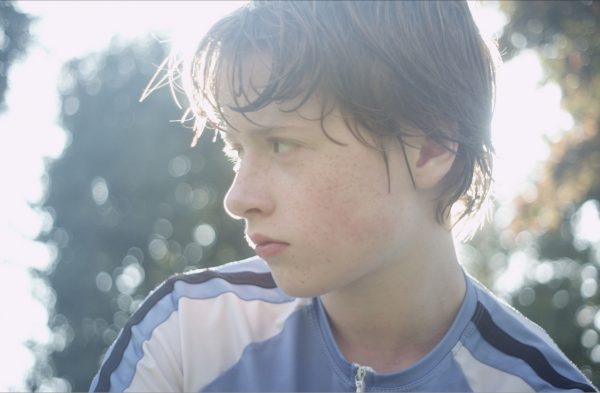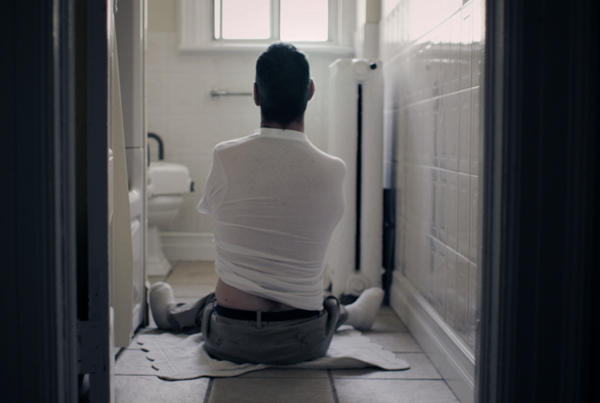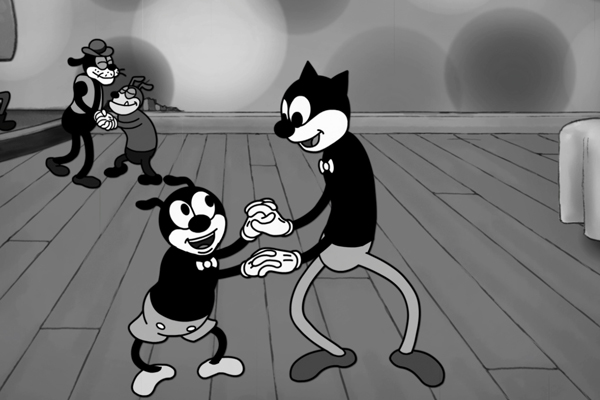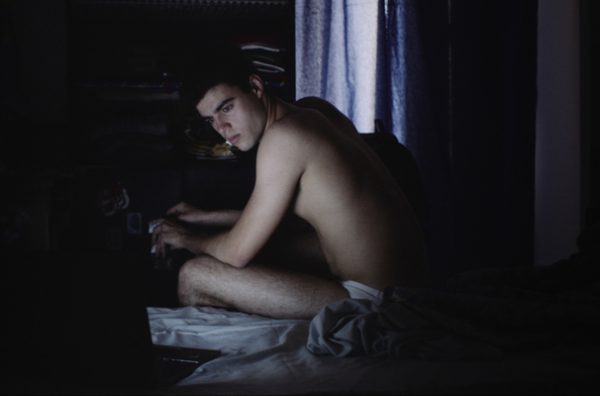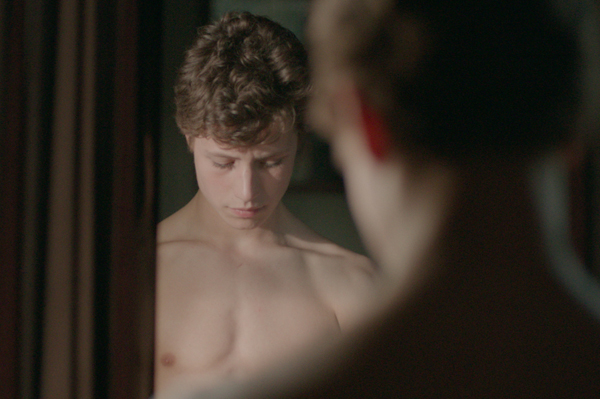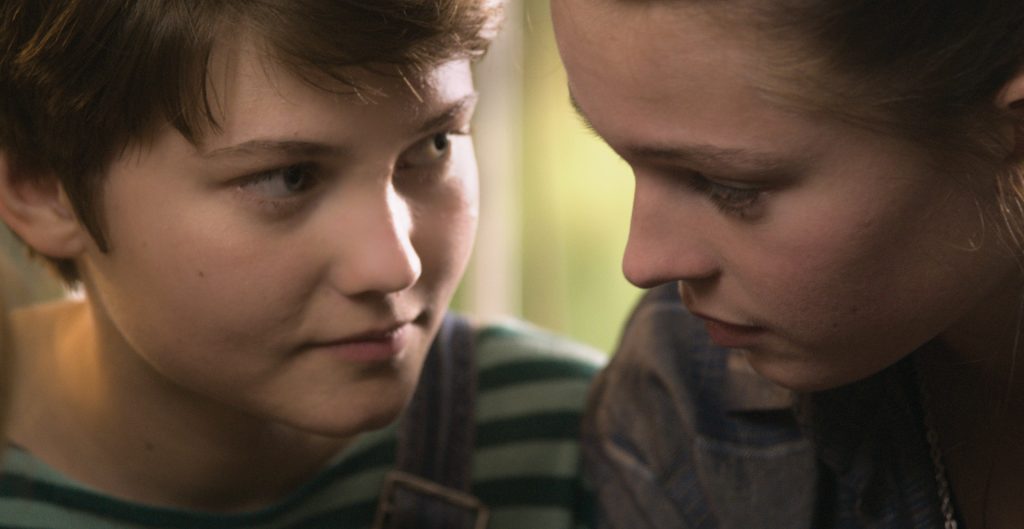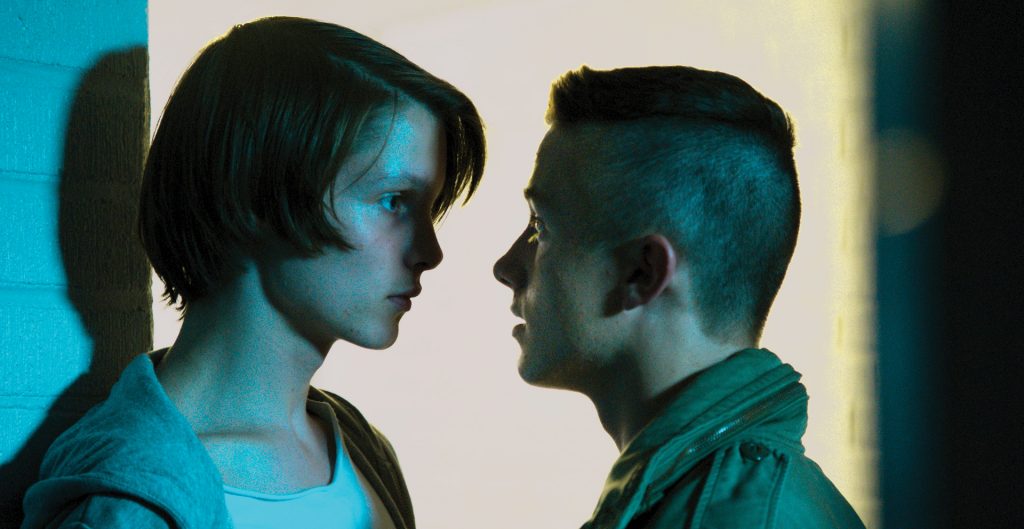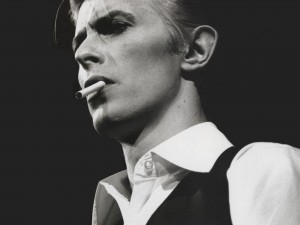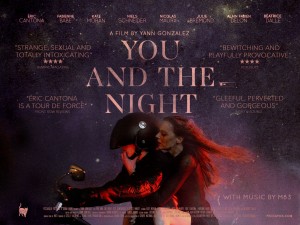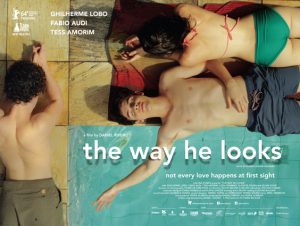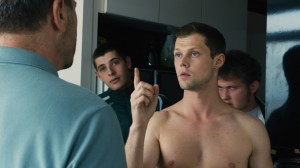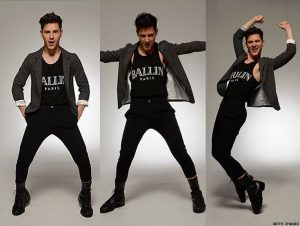In the first part of a two part interview, writer / director Jonas Carpignano talks with us about about casting the Amato family in his film THE CIAMBRA.
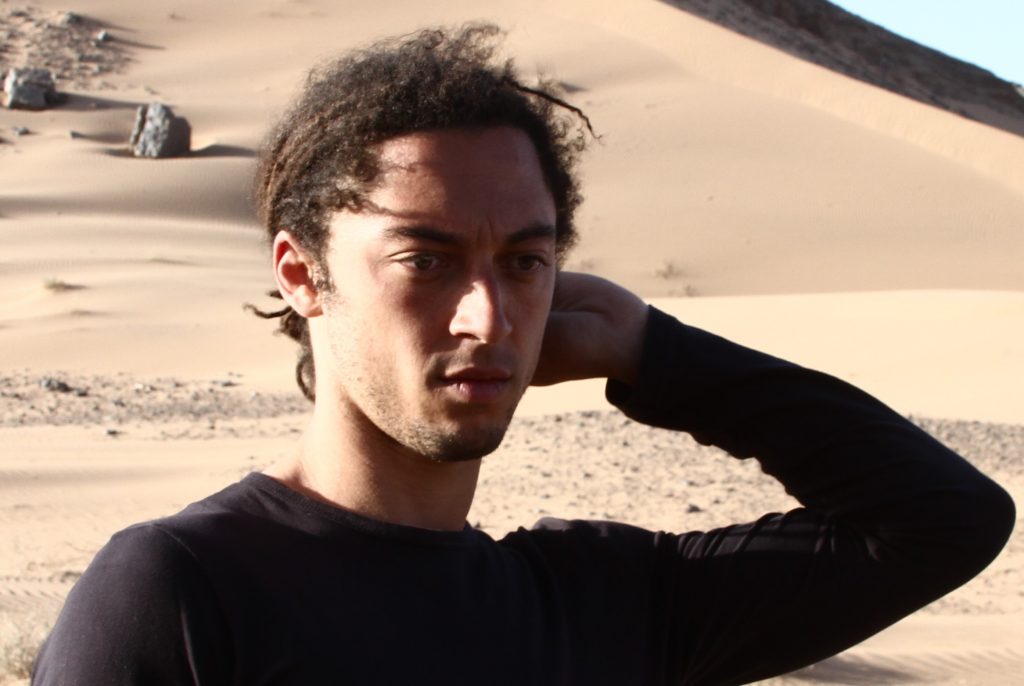
Writer-Director Jonas Carpignano
How did you first encounter the Amato family?
The first time I met the Amato family was in 2011 after the Fiat Panda filled with my crew’s film equipment was stolen. We were in Gioia Tauro (Calabria) shooting A Chjana (the short film which would later become Mediterranea). In Gioia Tauro, when a car disappears, the first thing you do is “go to the gypsies.”
That’s when I saw the Ciambra for the first time. I immediately fell in love with the energy of the place. Whenever I tell this story, Pio says that he remembers seeing me, but at the time I didn’t notice him – there was too much to take in. We had to wait three days to get the car back because Pio’s grandfather (the Nonno Emilian character is based on him) had just died and they wouldn’t negotiate the ransom for the car until after the funeral. Clearly that funeral procession made a big impression on me because five years later I wrote it into the film. Needless to say the entire situation had an enormous impact on me and soon after I wrote the first draft of the short version of A Ciambra.
It’s hard to generalize the position of the Romani in Italian society, and I don’t have the space here to really get into the complexities of their situation in Italy or in Europe in general. The fact is that they are not a monolithic group. There are those who have risen to the top of the organized crime pyramid like the Casamonica in Rome; or the hard working blue collar Romani who have everyday jobs and are indistinguishable from other Italians; or the nomads who live in squalid trailer camps created by local governments on the periphery of many major Italian towns; and countless other examples. What is relevant for the film is the role the Romani of the Ciambra play in Gioia Tauro and their relationship with the newly arrived African immigrants in Southern Italy. While I think that looking at this example can, hopefully, speak to a more universal condition, the goal with this film was never to shine a light on these broader sociological factors. I am interested in Pio and Ayiva and I think the film clearly articulates their relationship – specifically, its potential and its limits.
Pio Amato stole the show in Mediterranea and your short film A Ciambra (2014). Was it always your intention to go back and write a film around him and his family?
I met people who had all kinds of opinions while I was on the road with Mediterranea, but one thing that was consistent was the complete, utter love and appreciation for Pio. He has, as my friends in New Orleans say, it. Whatever it is, Pio has enough to burn, and I realized that the second I met him.
That said, I had intended to make a feature in the Ciambra before I ever met Pio, even before we started shooting Mediterranea. Casting the short version of A Ciambra was exactly like casting the short version of A Chjana. I went into the Ciambra with a rough idea of a story. Once I met Pio, I revised the story to take into account him and his family. Biographical elements of the Amato family ended up reshaping and altering the story in the same way that Koudous Seihon’s story shaped Mediterranea.
In both cases, after meeting the protagonist, I tried to make the films as true to their protagonists’ experiences as possible, while keeping some semblance of dramatic structure. In the case of A Ciambra (the short), I was interested in telling the tale of two brothers. In the winter of 2013 I started going to the Ciambra regularly to cast the film and the first person I was drawn to was Pio’s older brother.
At first he was completely against the idea of being in a film. He was so reluctant that one of the producers encouraged me to find someone else. However, I couldn’t see anyone else playing the role, so I kept after him for months.
A week or so later, Pio and I began becoming closer. He had shed his initial distrust for an outsider and it became clear that he and I had a special bond. It’s hard to describe what and how it happened but both of us knew, pretty quickly, that we would be important to each other. In a lot of ways his relationship with Ayiva in the film is a combination of his relationship with Koudous and with me. The first testament to that was when Pio helped me convince his brother to be in the short. It was our first success, kind of.
Kind of?
I say “kind of” because in reality Cosimo is played by two twins, Cosimo and Damiano Amato. I was always after Damiano, but for the short film I had to use Cosimo because Damiano wasn’t having it. Finally, by the time it was time to make the feature, Damiano came around to the idea and the film is all the better for it.
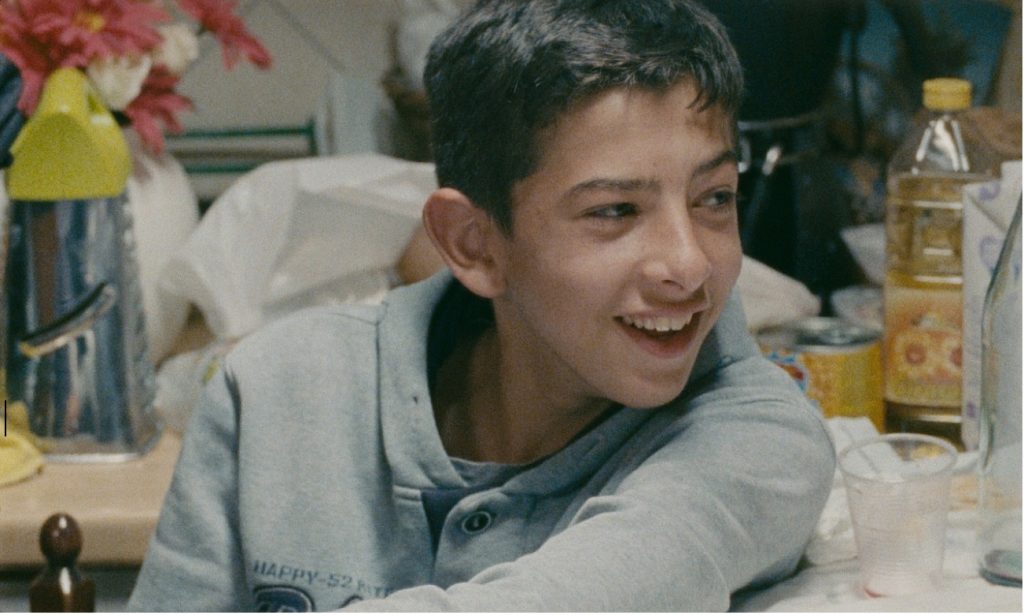
You have managed to get remarkable leading performances out of non-professional actors Pio Amato (and his family). What’s your approach in working with cast?
It’s different for each cast member. My approach to working with Pio was very different from my approach with Koudous, Iolanda, Pasquale or even my father, who played the guy at the train station. If there were one consistent element in working with all of them I’d say it was the atmosphere I tried to create. I am very militant on how many people are allowed on set, who is watching, and so on. Since we are always shooting in real locations, often in people’s houses, I never want to feel like we are altering the natural rhythm of the place. I always said to the crew that we need to adapt our approach to them, instead of trying to impose a traditional filmmaking infrastructure upon them. That would have never worked. So I think that by going with the flow, we were able to create a very safe atmosphere where people didn’t feel exposed. I’m not sure I could have gotten the same performances if I brought the A Ciambra cast to shoot those scenes on a soundstage in Rome, for example.
I also spent a lot of time breaking down barriers between the cast and myself. It was not a “professional” relationship. There was a deep familiarity between us which I think is why they were willing to go places when I asked them to. I can’t remember who said it recently, but I recall hearing: “There are two styles of directing. One where you stand still and demand that the actors come to you. And one where you go where they are and try to steer them in the direction you think is best.” I clearly fall into the second category.
Read part two of this interview here.

